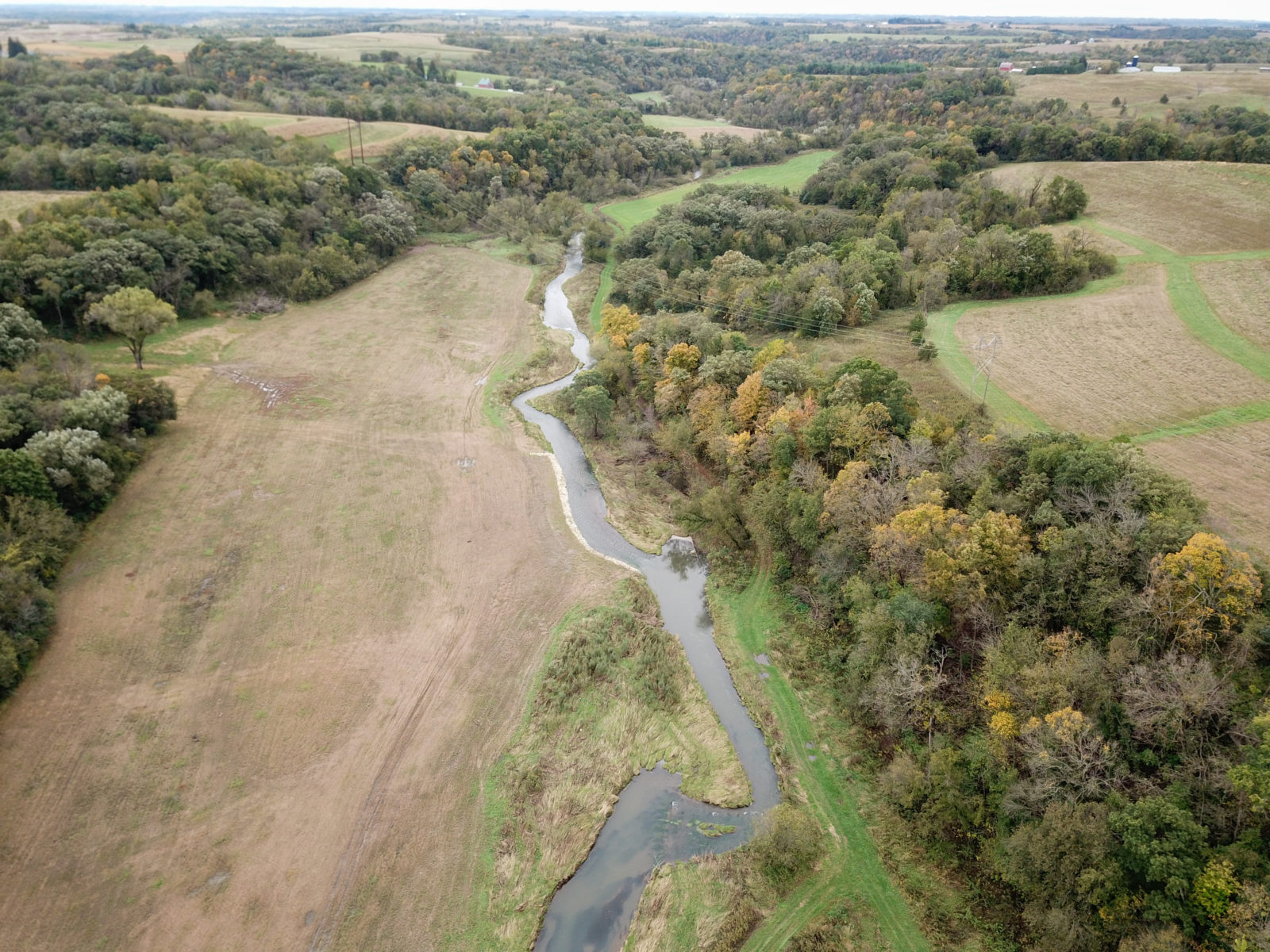Warren Shuros grew up on a farm on North Bear Creek a few miles from Highlandville in Winneshiek County. Whenever he could find time, he would hunt and fish throughout the hills and valleys of North Bear and South Bear Creeks. Wanting to preserve these beautiful places for future generations to enjoy, Warren and his wife Lois recently worked with Terry Gaumer at the Community Foundation of Northeast Iowa and Barbara Schroeder, Executive Director of Winneshiek County Conservation Board (WCCB) to establish the North and South Bear Creek Watershed Funds. The stated purpose of these two funds is for the preservation and conservation of the water quality and wildlife habitat within the North and South Bear Creek Watersheds.
The WCCB will oversee the watershed projects and work closely with landowners, local professionals from IA DNR Fisheries and the Natural Resources Conservation Service (NRCS) and Winneshiek County Soil & Water District as well as groups like Iowa’s Coldwater Conservancy and other Non-Governmental Organizations (NGO’s) that may wish to support the these endowment funds.
On February 15th, 2020, the ICC Board of Directors approved a grant of $1,000 to one of these North and South Bear Creeks Watershed Funds. Warren Shuros is also contacting his friends and neighbors to encourage their support for these endowment funds. At ICC, we believe there are other “stream stewards” like Warren and Lois Shuros in every county where coldwater rivers and streams flow. Who do you know who could become a “stream steward” for one of your favorite streams? To learn more about these funds, please contact the Community Foundation of Northeast Iowa at (319) 287-9106 or [email protected]
Let’s continue to work together with private land owners to encourage land use practices that will improve soil health, reduce soil erosion and improve water quality within the watersheds of our coldwater rivers and streams. If we can find ways to improve net results for land owners and retain this valuable soil where it belongs, everyone benefits. It has the potential to truly be a “win-win” result for humans and wildlife alike.
